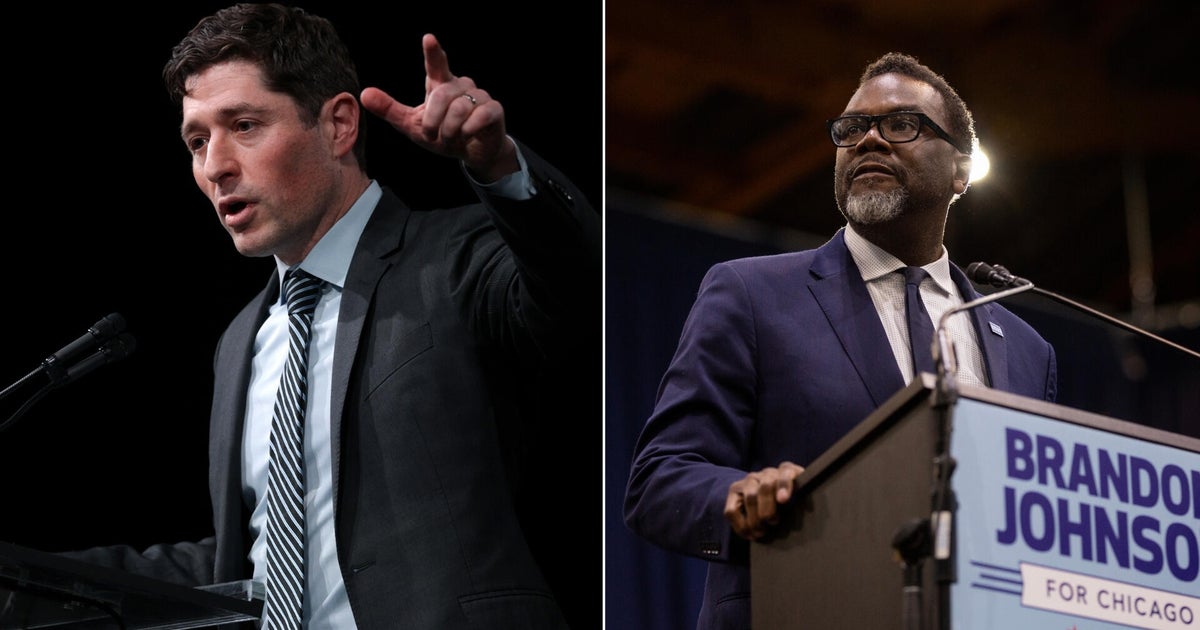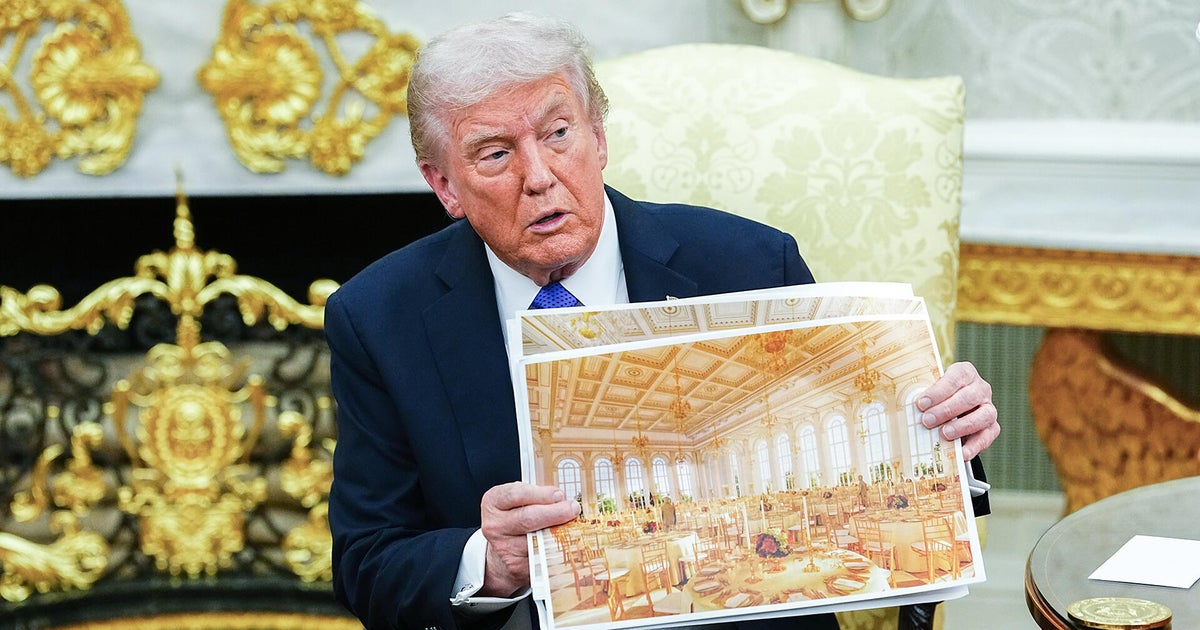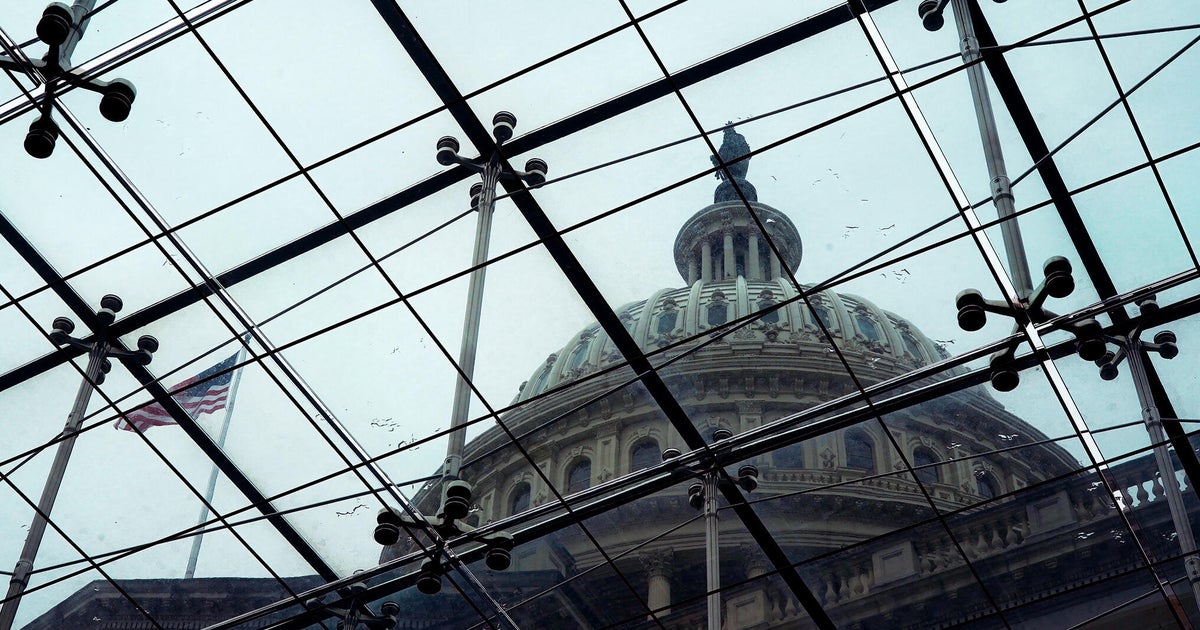2020 Daily Trail Markers: Dems split on calling Trump a white supremacist
A number of Democratic 2020 candidates have outright called President Trump a white supremacist in recent days, CBS News Political Unit Associate Producer Ellee Watson and CBS News Political Unit Intern Julia Cherner report.
When MSNBC's Jacob Soboroff asked former Rep. Beto O'Rourke on Tuesday if President Trump was a white supremacist, O'Rourke said, "yes, he has made that clear."
In an interview with CBS News Campaign Reporter Cara Korte on Thursday, Sen. Kirsten Gillibrand said, "Oh I've called him a white supremacist, as well as a racist, many many times. cause he is."
The New York Times reported on Wednesday that Sen. Elizabeth Warren answered "yes" to the same question, and she explained her decision to do so yesterday in Iowa to CBS News Campaign Reporter Adam Brewster, saying, he "cozies up to the white supremacists, he calls them 'fine fellows,' he's talked about trying to get brown people and black people out of this country."
At the National Association of Black Journalists Presidential Forum on Thursday, Mayor Pete Buttigieg answered "I do" when asked if President Trump is a white supremacist and added, "at best he's emboldening and empowering people with that ideology." Sen. Bernie Sanders told CNN's Jake Tapper "yes" when Tapper asked him if Trump was a white supremacist on Sunday.
And in a Friday appearance on the network, businessman Andrew Yang also said Mr. Trump is a white supremacist.
"If someone acts and speaks in a certain way, then you have no choice but to say that's what he is," Yang said.
Billionaire Tom Steyer, the latest candidate to enter the race, tweeted Thursday that Mr. Trump is a "racist and a white supremacist."
On Friday, Mr. Trump said that Democrats calling him racist are "desperate" and that "they call anybody a racist when they run out of cards."
Washington Gov. Jay Inslee prompted the conversation when he called the president a white nationalist during the second Democratic Debate on July 31. "We can no longer allow a white nationalist to be in the White House," Inslee stated in response to a moderator question about immigration reform.
Former Vice President Joe Biden, former Rep. John Delaney, and Sen. Kamala Harris have all recently accused Trump of enabling white supremacy, but did not go so far as to actually call him one. When asked at the Iowa State Fair on Thursday, Biden said he believes "everything the president does encourages white supremacists." Delaney said on Friday that Trump "loves the support" of white supremacist groups and he is "messaging to them all the time and that's enabling them."
FROM THE CANDIDATES
KAMALA HARRIS: Harris hit two local Storm Lake, Iowa businesses on second day of her "3AM Agenda Bus tour" through the state, according to CBS Campaign Reporter Stephanie Ramirez. The first stop was a Mexican restaurant called La Juanita. Harris knelt down to speak with two Hispanic children and told them one of the reasons she's running for president is because she wants to make sure they are happy, healthy and safe.
She also spoke to Iowa voters concerned about farming in the aftermath of Mr. Trump's trade war with China. Harris explained to a supporter that being from California, she understands the agricultural industry. "We produce almost half the fruits and vegetables for the whole country. I've spent a lot of time with our farmers," said Harris.
She also faced questions on her Medicare for All plan. A few supporters who greeted her at stops in Sioux City also voiced some confusion over Medicare for All but emphasized the importance of voting for the person they feel can beat Mr. Trump in 2020.
PETE BUTTIGIEG: Ahead of an Iowa campaign swing, Buttigieg released a health care plan that proposes affordable health care for rural Americans, increasing the number of physicians in rural areas and investing in "telehealth," according to CBS News campaign reporter Jack Turman.
Buttigieg proposes a "Medicare For All Who Want It" plan that he says strengthens the Affordable Care Act (ACA) and creates a public option. According to his proposal, the implementation of the plan would create competition between corporate insurers that would lead toward Medicare for All. Buttigieg's plan highlights the importance of improving upon the ACA, first stating the country "cannot make progress toward universal health care coverage unless we shore up the foundation laid by the ACA."
The plan also includes bolstering the number of physicians and health providers in rural America by encouraging immigrant doctors to work and practice in rural areas and by expanding funding for programs that "incentivize medical students and residents to work in rural communities." In order to encourage immigrant doctors to work in rural areas, Buttigieg calls for expanding a visa waiver requirement that would allow foreign doctors to work in rural areas instead of returning "to their home country for two years before re-entering the United States to work."
"It is time to break with the politics of the past, meet the urgency of this moment, and usher in a new era for rural America," Buttigieg said in a statement. "We need to lift rural communities up as places of opportunity, both for this generation and future ones. That work begins with securing the health of all rural residents."
Buttigieg's plan details that many rural patients cannot make health care appointments due to transportation issues and limited specialist care options. To address these issues, the plan proposes expanded access to telehealth by increasing rural broadband internet across the country and doubling funding for the Federal Communication Commission's Rural Health Care Program.
STATELY COVERAGE
UP NORTH: Miles away from the Iowa fair, New Hampshire campaign staff are busy pitching their presidential pick to 2.2% of America's registered voters, all of whom play an outsized role in selecting their party's nominee. Leading the charge is Elizabeth Warren, who has the largest staff in the state. The senator has spent 15 days working the crowds in New Hampshire since announcing her exploratory bid in January.
Bernie Sanders, the winner of the 2016 New Hampshire Primary, announced 45 campaign staff in his 2020 reboot last month. The campaign has also accrued the most individual contributions from New Hampshire residents this cycle, in addition to opening six offices and onboarding thousands of volunteers.
Despite a late entry, Joe Biden's team of over forty campaign staff began door-knocking last month, following their candidate's sixth day campaigning in state. Also growing – Pete Buttigieg's operation now boasts 40 paid staffers, and added a data director and four regional organizing directors last week. During the South Bend Mayor's twelve days of New Hampshire retail and town halls, nearly 600 Granite Staters attended multiple candidate events, according to the campaign.
ON THE $$$
AD SPENDING: Kirsten Gillibrand's presidential campaign has launched a $1 million+ television and broadcast ad campaign in New Hampshire and Iowa. The 30-second ad, entitled "Imagine," will begin airing in the two early states beginning on Saturday, according to CBS News Campaign Reporter Nicole Sganga. Gillibrand previously launched the first anti-Trump attack ads in the 2020 cycle, called "I Promise", targeting Obama-Trump voters in Pennsylvania, Ohio and Michigan last month.



